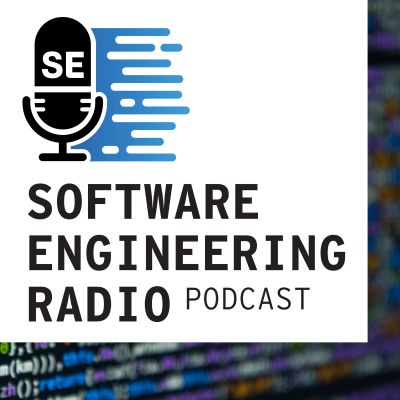Software Engineering Radio is a podcast targeted at the professional software developer. The goal is to be a lasting educational resource, not a newscast. SE Radio covers all topics software engineering. Episodes are either tutorials on a specific topic, or an interview with a well-known character from the software engineering world. All SE Radio episodes are original content — we do not record conferences or talks given in other venues. Each episode comprises two speakers to ensure a lively listening experience. SE Radio is brought to you by the IEEE Computer Society and IEEE Software magazine.
https://www.se-radio.net
Gesamtlänge aller Episoden: 37 days 4 hours 20 minutes
recommended podcasts
Episode 117: Bran Selic on UML
In this episode we're talking to Bran Selic of Malina Software about modelling in general and UML2 in particular. Bran covers the basics of modelling, the history of UML, and what's new in UML2.
Episode 116: The Semantic Web with Jim Hendler
In this episode we're talking to James A. Hendler about the semantic web. We start with a definition of the semantic web and by discussing the main ingredients. We then look at (more or less) related topics such as prolog, artificial intelligence,
Episode 116: The Semantic Web with Jim Hendler
In this episode we're talking to James A. Hendler about the semantic web. We start with a definition of the semantic web and by discussing the main ingredients. We then look at (more or less) related topics such as prolog, artificial intelligence,
Episode 115: Architecture Analysis
During Evolution of a software system, it becomes more and more difficult to understand the originally planned software architecture. Often an architectural degeneration happens because of various reasons during the development phases.
Episode 115: Architecture Analysis
During Evolution of a software system, it becomes more and more difficult to understand the originally planned software architecture. Often an architectural degeneration happens because of various reasons during the development phases.
Episode 114: Christof Ebert on Requirements Engineering
In this episode we talk to Christof Ebert about requirements engineering. As the name "engineering" suggests, we need to be systematic when working and managing requirements. Christof will structure RE into several activities,
Episode 114: Christof Ebert on Requirements Engineering
In this episode we talk to Christof Ebert about requirements engineering. As the name "engineering" suggests, we need to be systematic when working and managing requirements. Christof will structure RE into several activities,
Episode 113: Building Platforms with Jeff McAffer
In this episode we talk with Jeff McAffer about building platforms. We start with a brief discussion about what a platform is in contrast to a framework or an application. Drawing from his experiences working on the Eclipse platform for years,
Episode 113: Building Platforms with Jeff McAffer
In this episode we talk with Jeff McAffer about building platforms. We start with a brief discussion about what a platform is in contrast to a framework or an application. Drawing from his experiences working on the Eclipse platform for years,
Episode 112: Roles in Software Engineering II
This is the second part of the two part topic on roles in software engineering. Michael and Markus discuss role definitions in a corporate environment. For several typical roles we give hints on the expected skills, knowledge, and mindset.
















